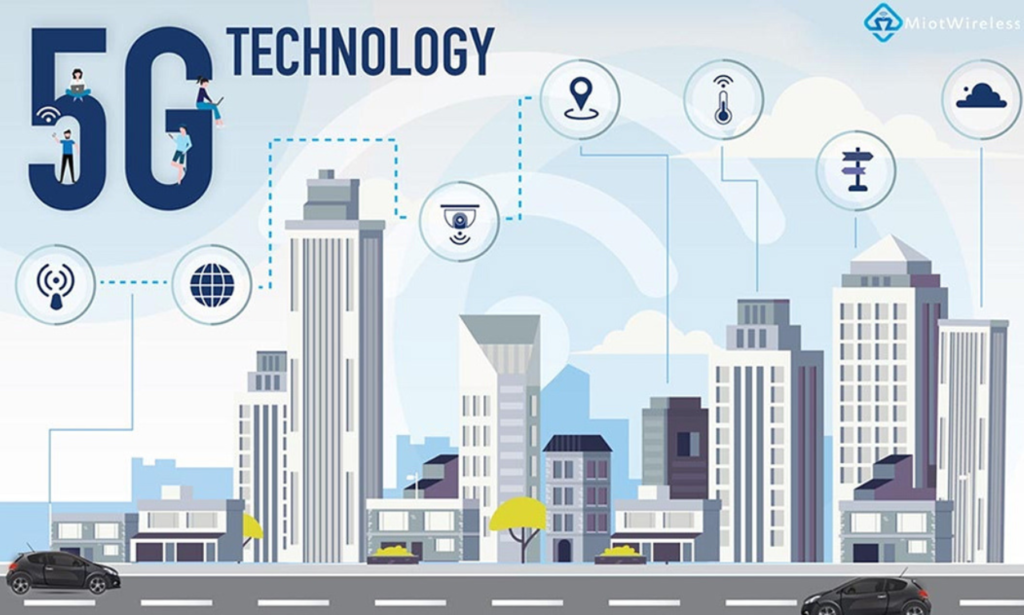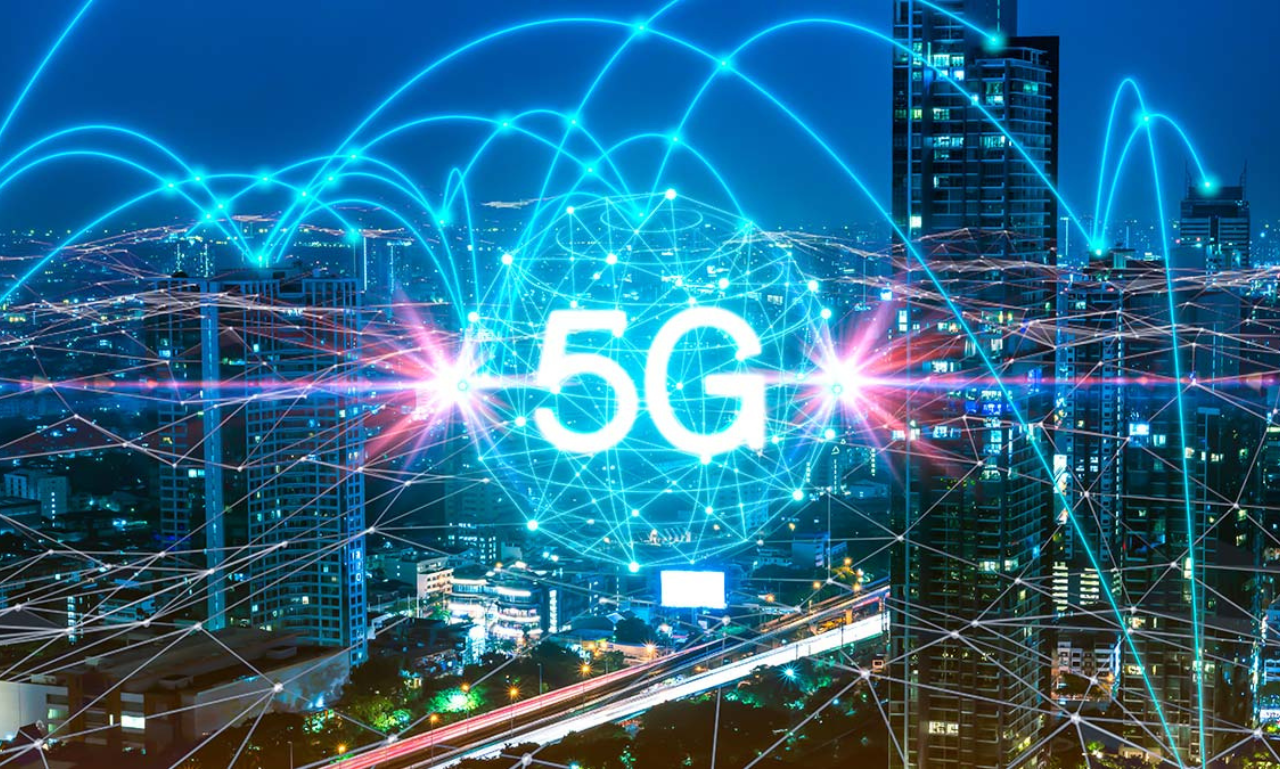Introduction
In trendy rapid-paced digital international, having a sturdy and dependable internet connection is essential. With the rise of 5G era, connectivity has taken a prime bounce ahead. But no longer all 5G networks are created same. 5G vs 5G Ultra Wideband is a warm subject matter as humans try to understand the differences among those two effective technology. While both offer faster speeds and higher overall performance than previous generations, 5G Ultra Wideband promises even greater staggering speeds and ultra-low latency, mainly in densely populated areas. This evaluation will smash down the key differences and assist you understand which network is best proper in your needs.
If you are curious approximately how 5G vs 5G Ultra Wideband stack up in phrases of speed, coverage, and overall performance, hold studying! We’ll dive into what units these technology apart and the way they impact your everyday connectivity. Whether you are streaming, gaming, or working, know-how the benefits of every community will help you make the proper choice.
1. Understanding the Basics of 5G vs 5G Ultra Wideband
When speaking about 5G vs 5G Ultra Wideband, it’s vital to first understand what every of those technology represents. 5G is the 5th generation of mobile networks, designed to provide quicker net speeds, extra dependable connections, and reduced latency in comparison to previous generations like 4G. With 5G, customers can enjoy better down load and upload speeds, making it perfect for activities together with streaming, gaming, and video conferencing. It additionally supports greater devices linked to the network on the same time without slowing down.
On the other hand, 5G Ultra Wideband (now and again referred to as 5G UWB) is a stronger model of 5G. It makes use of a particular type of frequency, typically within the millimeter-wave spectrum, to offer even faster speeds and extremely low latency. This makes 5G Ultra Wideband perfect for excessive-call for environments, like crowded urban regions or big venues, where many people are using the community simultaneously.
The key variations between 5G and 5G Ultra Wideband lie specifically in speed and insurance. While both technology provide quicker overall performance than older networks, 5G Ultra Wideband takes it a step in addition with blazing-fast speeds, however its insurance area is generally smaller due to the better frequency bands it uses. In contrast, standard 5G has a much wider attain but slightly decrease speeds in comparison to 5G Ultra Wideband.
5G and 5G Ultra Wideband work together by completing each other. Regular 5G covers larger areas, while 5G Ultra Wideband focuses on providing maximum concert in smaller, high-traffic areas. This combination helps deliver a more consistent and reliable experience for users, no matter where they are. Thoughtful these basics helps you grasp the full potential of these advanced technologies.
Speed and Performance: 5G vs 5G Ultra Wideband
When it comes to speed and overall performance, 5G vs 5G Ultra Wideband is a important evaluation. Standard 5G already presents big enhancements over older networks like 4G, providing quicker download and add speeds, decrease latency, and more dependable connections. However, 5G Ultra Wideband takes matters a step in addition with the aid of delivering even faster speeds, every so often up to ten instances quicker than normal 5G, specifically in densely populated regions. This makes a massive distinction in sports like streaming high-definition video, downloading massive documents, and on-line gaming, where every second counts.
The maximum important performance upgrade with 5G Ultra Wideband is its decreased latency, which refers to the time it takes for statistics to tour among your tool and the network. Lower latency approach quicker responses, making Ultra Wideband best for real-time programs like virtual fact, video conferencing, and independent riding. On the alternative hand, ordinary 5G still offers wonderful speeds and overall performance, but the ultra-low latency of Ultra Wideband makes it stand out for excessive-call for sports.
In actual-world utilization, both 5G and 5G Ultra Wideband provide remarkable pace and overall performance enhancements, but the distinction becomes more sizeable in crowded urban regions. Ultra Wideband generation is designed to handle high site visitors extra correctly, ensuring quicker speeds even when many customers are linked. This makes it specifically beneficial in massive cities, stadiums, and live performance venues in which network demand is high.
Ultimately, the choice between 5G vs 5G Ultra Wideband for pace and performance depends to your area and your internet desires. If you stay in a hectic vicinity and require ultra-fast internet for gaming, streaming, or business use, Ultra Wideband can be the better option. However, for more everyday users, standard 5G still offers more than enough speed for regular tasks.

Coverage and Availability of 5G vs 5G Ultra Wideband
When discussing 5G vs 5G Ultra Wideband, one of the key differences lies of their insurance and availability. While 5G is designed to cowl massive areas, providing connectivity across cities, cities, and rural regions, 5G Ultra Wideband (UWB) focuses on delivering the best speeds in extra focused locations. Standard 5G networks use lower-frequency bands that offer extensive coverage however slightly lower speeds as compared to Ultra Wideband. This makes 5G best for large usage, where connectivity is needed across massive regions, along with highways or rural communities.
On the other hand, 5G Ultra Wideband makes use of excessive-frequency millimeter-wave technology, which lets in for much quicker records transfer but is limited in variety. Due to this trouble, 5G Ultra Wideband is usually located in densely populated city areas, stadiums, airports, and enterprise hubs in which there is an excessive call for quicker speeds and more reliable connections. While Ultra Wideband gives great performance, it doesn’t tour as far as popular 5G, making its insurance more confined.
Factors like infrastructure development, populace density, and geographic conditions all play vast roles in figuring out where each network kind is available. For users in rural regions, general 5G will likely be more commonplace, as it can stretch across huge spaces. However, urban customers can also revel in the benefits of 5G Ultra Wideband greater regularly, particularly in high-visitors areas. In the destiny, efforts to enlarge 5G Ultra Wideband insurance to greater areas, together with rural areas, are underway, but for now, its primary presence is in cities.
5G Coverage in Different Regions
5G networks are widely to be had across many areas, together with big cities, small cities, and even rural regions. The decrease-frequency bands used by 5G permit for wide insurance, making it reachable to greater people. This makes 5G an outstanding alternative for users who want dependable connectivity in faraway areas.
Where is 5G Ultra Wideband Available?
Currently, 5G Ultra Wideband is to be had in choose places, mainly in larger towns and high-call for regions like airports and stadiums. Its insurance is more limited compared to traditional 5G, however wherein it’s available, the speeds and overall performance are unmatched, offering faster downloads and smoother streaming.
Factors That Influence 5G and 5G Ultra Wideband Coverage
Several factors have an effect on the insurance of 5G vs 5G Ultra Wideband, including the generation used, neighborhood infrastructure, and terrain. 5G Ultra Wideband is based on extra towers because of its shorter variety, which means it’s miles commonly concentrated in regions with excessive person call for and sturdy infrastructure.
Expanding 5G Ultra Wideband to Rural Areas
There are plans to expand 5G Ultra Wideband into extra rural and suburban areas, though this could take time. As infrastructure grows and call for will increase, we will expect Ultra Wideband to attain more remote locations, however presently, its presence is focused in cities.
Devices and Compatibility: 5G vs 5G Ultra Wideband
When it involves 5G vs 5G Ultra Wideband, one of the key concerns is whether or not your device is compatible with those superior networks. Most contemporary smartphones, especially flagship fashions from fundamental brands like Apple, Samsung, and Google, now support 5G connectivity. These telephones are designed to tap into trendy 5G networks, giving users get right of entry to faster speeds and better performance than 4G LTE. However, 5G Ultra Wideband is a step above normal 5G, presenting even faster speeds and lower latency, but now not all gadgets can completely utilize it.
For customers to take complete benefit of 5G Ultra Wideband, their devices want to have precise hardware that supports millimeter-wave (mm Wave) technology, which is what powers the quicker speeds and broader bandwidth of Ultra Wideband. Many of the ultra-modern excessive-quit smartphones, like the iPhone 14 Pro and Samsung Galaxy S21 Ultra, include this capability. Still, a few mid-range or older fashions may handiest assist well-known 5G, which means they won’t benefit from the lightning-rapid speeds of 5G Ultra Wideband.
Upgrading your device is essential in case you want to revel in the whole lot 5G Ultra Wideband has to offer. Many vendors are rolling out deals and exchange-in options, making it less difficult to replace to a compatible cellphone without breaking the bank. Additionally, as 5G Ultra Wideband expands, manufacturers are working on destiny-proofing new devices to make sure they may be ready for both existing and upcoming 5G technologies. This approach that as networks evolve, your device will continue to be applicable and able to handing over the pleasant overall performance.
Which Devices Support 5G?
Most of the modern smartphones, consisting of iPhones (beginning from iPhone 12), and top rate Android gadgets just like the Google Pixel 6 and Samsung Galaxy collection, help 5G. These devices are optimized for quicker speeds and better connectivity.
Is Your Phone Compatible with 5G Ultra Wideband?
Not all phones that help 5G can use 5G Ultra Wideband. To gain from this advanced community, your smartphone ought to help mmWave generation. Check your cellphone’s specs to see if it’s far compatible.
Upgrading Devices for 5G Ultra Wideband
If you need the total benefits of 5G Ultra Wideband, you could need to improve to a more moderen device that helps mmWave. Phones like the iPhone 14 Pro or Samsung Galaxy S21 Ultra are properly alternatives.
Future-Proofing Devices for Upcoming 5G Technologies
When choosing a cellphone, it’s smart to invest in one that’s destiny-proofed for upcoming 5G advancements. This ensures that your tool will preserve to help the latest network enhancements over the years.
Choosing the Right Network: 5G vs 5G Ultra Wideband
When identifying among 5G vs 5G Ultra Wideband, it’s critical to don’t forget your particular needs. Both networks provide rapid, dependable internet, but the distinction lies of their velocity and coverage. For maximum customers, normal 5G offers an extensive improve over 4G, supplying quicker downloads, smoother streaming, and higher standard performance. However, 5G Ultra Wideband takes things to the next degree with the aid of supplying even better speeds and lower latency, especially in densely populated areas like cities. This makes it best for those who require faster connections for exquisite streaming, on-line gaming, and facts-in depth responsibilities. Businesses can also benefit from the improved overall performance, particularly those that rely on real-time verbal exchange and cloud-based offerings. Understanding the professionals and cons of both networks let you pick out the proper option primarily based for your lifestyle and usage habits.
Which Network is better for Streaming and Gaming?
If you’re into streaming excessive-definition content or gambling online video games, the velocity and coffee latency of 5G Ultra Wideband can offer a miles smoother revel in. It reduces buffering, lag, and delays, allowing you to enjoy uninterrupted streaming and fast-paced gaming. On the other hand, everyday 5G still offers appropriate speeds, however in areas with heavy network congestion, Ultra Wideband outperforms trendy 5G.
Is 5G Ultra Wideband Worth the Investment?
While 5G Ultra Wideband offers remarkable overall performance, it could come at a better fee, depending for your provider company. If you’re a person who makes use of the internet heavily for work, streaming, or gaming, the investment in Ultra Wideband can be worth it. However, for informal users who don’t want ultra-fast speeds all of the time, standard 5G may offer extra than enough bandwidth for his or her every day needs at a decrease fee.
Benefits of 5G for Businesses and Enterprises
For organizations, the debate between 5G vs 5G Ultra Wideband is even greater essential. Ultra Wideband offers blessings in terms of reliability, velocity, and reduced latency, making it best for companies that rely upon big amounts of statistics transfer, video conferencing, or far flung paintings. Ultra Wideband’s superior overall performance can decorate productiveness, lessen downtime, and improve customer reports.
5G vs 5G Ultra Wideband: Which is great for Everyday Users?
For the common person, the choice among 5G vs 5G Ultra Wideband depends on how you operate your gadgets. If you ordinarily browse the internet, test emails, and watch motion pictures once in a while, general 5G can be extra than sufficient. However, in case you’re a heavy user who streams in 4K, video games on line, or works remotely with massive document transfers, 5G Ultra Wideband is a better desire due to its superior overall performance and reliability in high -demand environments.

5 FAQs
- What is the primary difference between 5G and 5G Ultra Wideband?
The most important distinction is in pace and insurance. While both offer faster connections than 4G, 5G Ultra Wideband presents a good deal better speeds and decrease latency, specially in dense urban regions.
- Is 5G Ultra Wideband to be had anywhere?
No, 5G Ultra Wideband is presently restrained to pick regions, generally in huge cities. Standard 5G has broader coverage, however Ultra Wideband is increasing gradually.
Three. Which is higher for streaming and gaming, 5G or 5G Ultra Wideband?
For high-definition streaming and lag-free gaming, 5G Ultra Wideband is superior due to its faster speeds and decrease latency.
- Does 5G Ultra Wideband cost extra than everyday 5G?
Yes, depending on your provider, 5G Ultra Wideband may also come at a better fee because of its superior overall performance and limited availability.
- Can my cellphone use each 5G and 5G Ultra Wideband?
Yes, in case your smartphone is well suited with 5G technology, it may transfer among fashionable 5G and 5G Ultra Wideband depending on network availability to your region
Conclusion
When evaluating 5G vs 5G Ultra Wideband, it’s clear that each networks provide tremendous benefits over older generations of connectivity. Regular 5G is widely to be had and gives faster speeds for normal obligations, while 5G Ultra Wideband excels in delivering terrific speed and performance for annoying activities like gaming and streaming. Ultimately, the selection among the 2 comes down to your precise desires and the network availability in your area.
Meta Description
Discover the differences among 5G vs 5G Ultra Wideband and find out which network is pleasant for your streaming, gaming, and ordinary wishes.





